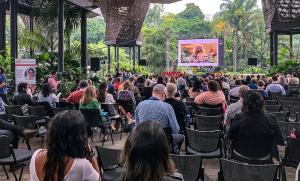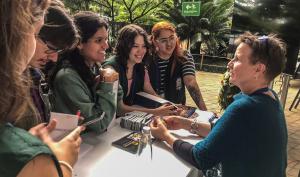Meeting ITER in Medellín, Colombia
Journalists examined a range of other crucial issues, such as the role of public policy in science and technology, food security and food safety, and the practical and ethical implications of new biotechnologies. Focus sessions dealt with the essence of the journalistic trade—reporting on risk and uncertainty in science, the question of whether humour has its place in science journalism, or the use of new media technologies.
Climate change was the underlying theme for many discussions. Here in particular, it was interesting to note the move toward solutions-oriented journalism, focusing on exploring answers to challenges rather than just dwelling on problems. The plenary on energy security—with ITER's participation—was a good example. Panellists discussed access to energy, with an emphasis on the development of energy solutions that are environmentally sustainable in a world that has to deal with the increasing effects of climate change.
The World Conference of Science Journalists provided yet another stage to show that fusion is a long-term solution for addressing the world's energy problems and helping to combat the effects of climate change. Many invitations were extended to conference participants, and the ITER Project hopes that science journalists from all over the world will visit for a first-hand experience!



